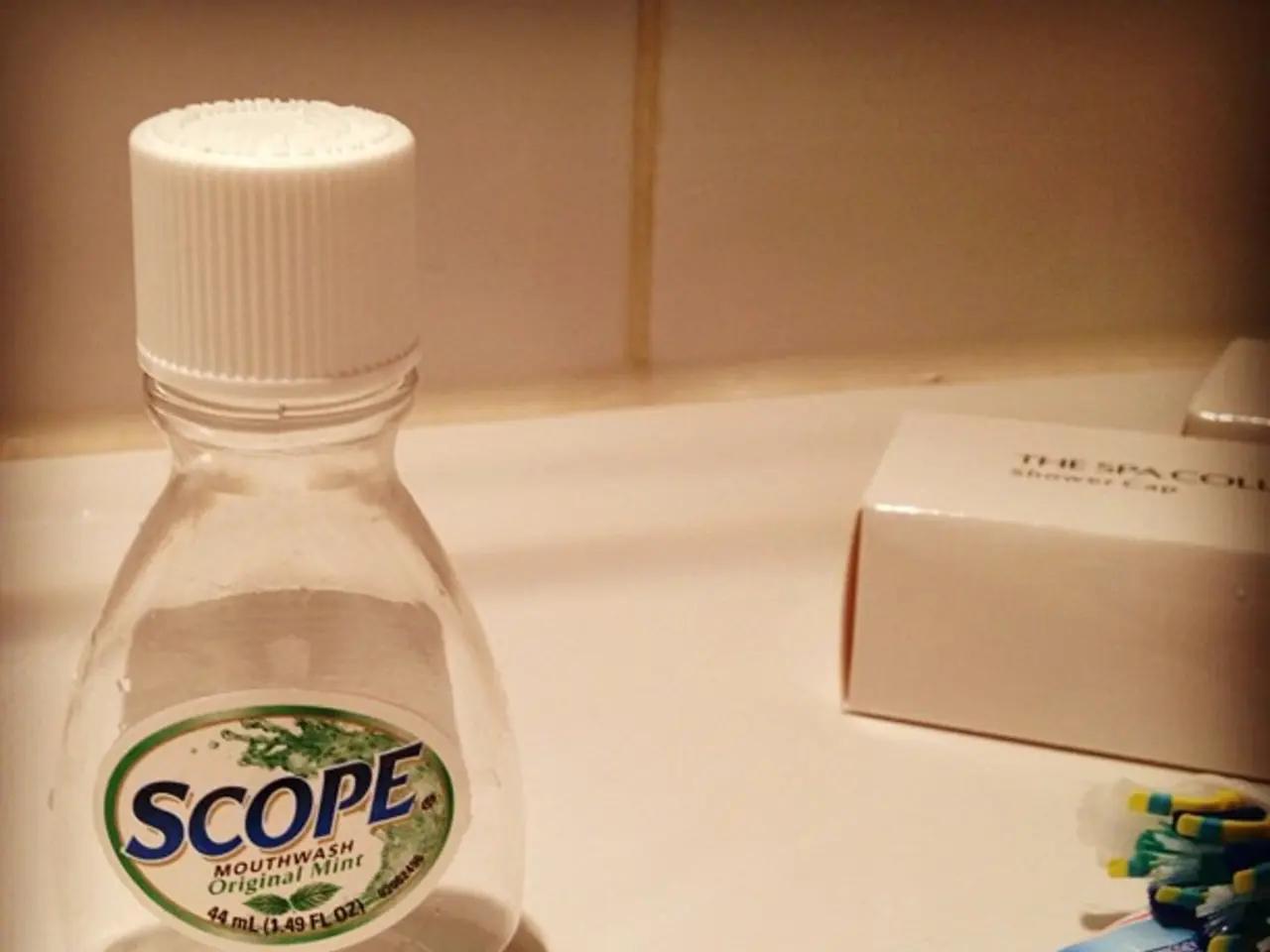Muscle spasm in the cricopharyngeus: Information on relief, treatment options, and signs
The cricopharyngeus muscle, also known as the upper esophageal sphincter (UES), plays a crucial role in the digestive system by opening and closing the esophagus. However, when this muscle experiences involuntary spasms, known as cricopharyngeal spasms, it can cause a range of distressing symptoms, including difficulty swallowing (dysphagia), a feeling of a lump in the throat, and discomfort or pain in the throat region.
Common symptoms of cricopharyngeal spasms include a sensation of tightness or spasm in the throat at the level of the cricopharyngeus muscle, difficulty swallowing, feeling of a lump or obstruction in the throat, inability or difficulty to burp, gurgling sounds in the throat or chest, and discomfort or pain in the throat region. These symptoms arise due to involuntary spasms of the cricopharyngeus muscle, which normally relaxes to allow passage of food and air.
Home remedies and management strategies for cricopharyngeal spasms primarily focus on symptomatic relief and muscle relaxation. Stress and anxiety reduction techniques such as mindfulness, meditation, and breathing exercises are recommended, as stress can exacerbate muscle spasms. Dietary modifications, like eating softer foods and taking smaller bites, may also reduce swallowing difficulty. Hydration and warm beverages might help soothe throat muscles, and gentle throat massages or swallowing exercises recommended by speech therapists may provide some relief. Avoiding irritants such as caffeine, alcohol, and smoking, which can increase muscle tension, is also advisable.
In more persistent or severe cases, medical treatments may be necessary. Botox injections into the cricopharyngeal muscle temporarily paralyze and relax the spastic muscle, improving symptoms such as inability to burp and swallowing difficulties. In certain cases, surgical intervention like partial cricopharyngeal myotomy may be considered if Botox and conservative measures fail.
Treating the underlying cause of cricopharyngeal spasms, such as neurological, acid reflux, or inflammatory conditions, usually stops spasms and reduces the risk of their recurrence. Anxiety and stress are thought to increase the risk of cricopharyngeal spasms, so addressing these factors is crucial in managing the condition.
In summary, early steps in managing cricopharyngeal spasms include home-based stress management and dietary changes. Medical interventions such as Botox and surgery are reserved for refractory cases under specialist care. It's important to note that these symptoms tend to worsen towards the end of the day and under stress, potentially leading to insomnia.
While cricopharyngeal spasms can be distressing, it's essential to remember that they are usually not indicative of serious medical conditions like cancer until an individual can no longer eat and drink normally. However, an estimated % of people who experience serious strokes experience some form of cricopharyngeal dysfunction.
The severity of symptoms of cricopharyngeal spasms can vary, with some people experiencing more sensitivity or awareness of the spasms. By understanding the symptoms, home remedies, and medical treatments available, individuals can take proactive steps towards managing this condition and improving their quality of life.
- Science has explored various therapies and treatments for neurological disorders, including cricopharyngeal spasms.
- Health-and-wellness programs in the workplace may include workshops on fitness-and-exercise, mental-health, and skin-care to promote overall well-being.
- Nutrition plays a key role in maintaining a balanced lifestyle and managing medical conditions like cricopharyngeal spasms effectively.
- CBD, a compound derived from the cannabis plant, has shown potential in treating a variety of medical conditions, including certain neurological disorders.
- In the realm of sports, athletes often face various injuries and medical conditions, such as cricopharyngeal spasms, which require careful treatment and management.
- Sports betting is a popular form of entertainment, but it's crucial to remember that maintaining health-and-wellness is of utmost importance, regardless of one's interests in sports.
- Asthma and HIV are two prominent medical conditions that require regular medical attention and management to ensure proper health and well-being.
- Aq, a hydrating substance, can help soothe throat muscles affected by cricopharyngeal spasms, providing temporary relief and promoting overall health-and-wellness.








